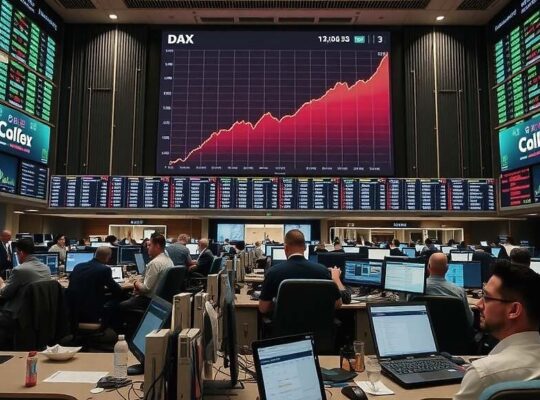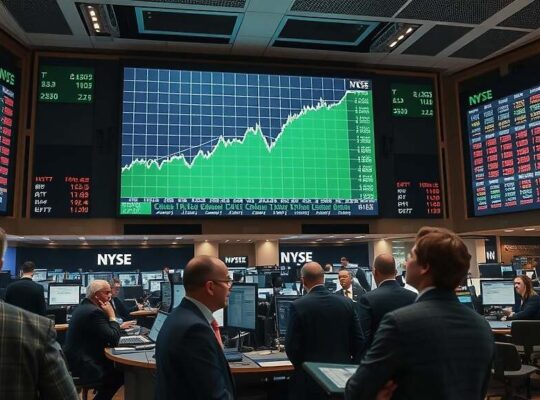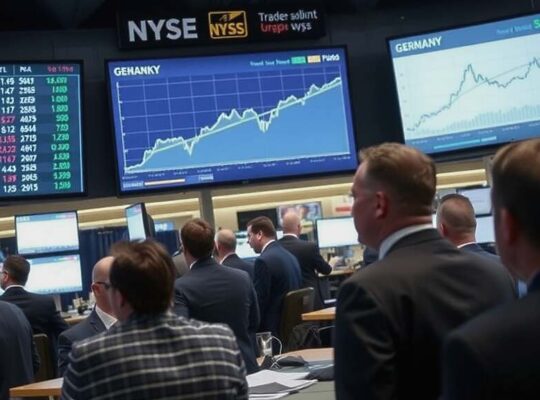Frankfurt’s DAX Index experienced a decline on Wednesday, closing at 24,151 points, a 0.7 percent decrease from the previous day’s close. The downturn followed a volatile morning session, with the index slipping further into negative territory throughout the afternoon. Market sentiment appeared largely influenced by pre-emptive caution surrounding impending earnings reports from US-based electric vehicle manufacturer Tesla and German software giant SAP.
Christine Romar, Head of Europe at CMC Markets, attributed the subdued performance to pervasive uncertainty. “The market is clearly bracing for potential disappointment from both Tesla and SAP. Investor anxieties are palpable” she stated. While acknowledging the technical resilience of the DAX, which has largely maintained its gains from a robust start to the week without triggering significant profit-taking, Romar cautioned that the situation remains precarious. A positive SAP earnings report could potentially propel the index towards new all-time highs, but the prevailing mood remains cautious.
Underlying the market’s nerves is the ever-present threat of renewed tensions in the US-China trade dispute. While recent conciliatory remarks from US President Donald Trump offered a brief respite, the potential for escalation remains a significant risk factor. Romar emphasized that underlying market volatility, reflected in Wall Street’s implicit volatility levels, suggests a fragile veneer of stability. She conceded, however, that substantive progress in trade negotiations could trigger an upward rally for equity indices.
Trading activity saw Scout24, Siemens Healthineers and Continental leading the Frankfurt exchange throughout much of the day, while Siemens Energy languished at the bottom of the list.
Beyond equities, energy markets exhibited diverging trends. Natural gas prices fell, with a megawatt-hour (MWh) for November delivery priced at €32, representing a 2 percent decrease from the previous day. This translates to a consumer price of at least 8 to 9 cents per kilowatt-hour (kWh), assuming sustained price levels. Conversely, oil prices saw a significant increase, with a barrel of Brent crude reaching $62.39, a 1.7 percent rise from the previous day’s closing value.
The Euro also strengthened slightly against the US dollar, trading at $1.1610, with a dollar fetching €0.8613. Observers suggest this modest strengthening could be attributed to a broader reassessment of global economic risks, although the inherent fragility of the market environment continues to temper optimism. The interplay of these fluctuating markets underscores the precarious nature of current economic conditions and the sensitivity of investor confidence to geopolitical events and corporate earnings performance.












